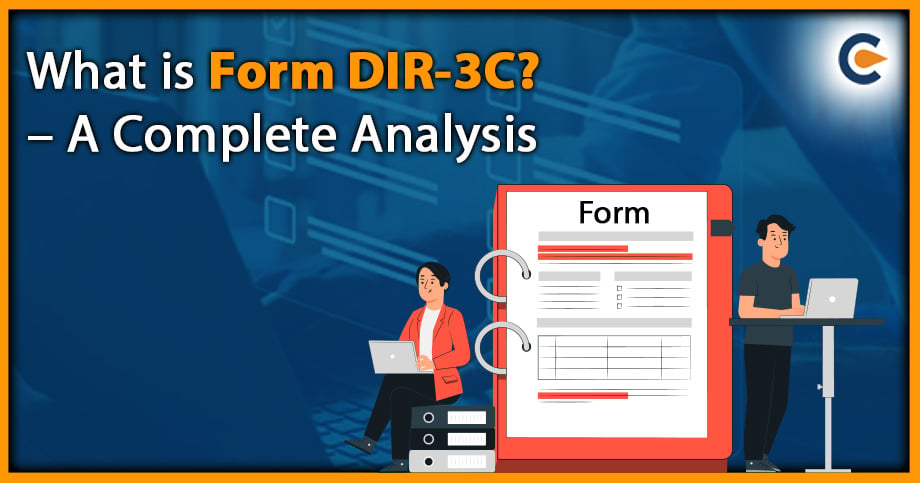According to Section 2(51) of the Companies Act (2013), Whole Time and Managing Director are considered Key Managerial Personnel of a company. In simple terms, a Managing Director is an individual who is responsible for administering the daily operations of a company. He is also liable to plan, control, and direct the company’s functioning. On the other side, a Whole Time Director includes a director who is in the company’s whole-time employment, commits all of his time & attention to the company’s affairs in question, and has a major personal interest in the company as their income source. In this blog, we will discuss the difference between Whole Time and Managing Director.
What is the Meaning of Whole Time and Managing Director?
Before we discuss the difference between Whole Time and Managing Director, let’s first understand the individual meaning of Whole Time and Managing Director.
- Managing Director (MD): According to Section 2(54) of the Companies Act, 2013, Managing Director means a director who, by virtue of:
- An agreement with the company;
- A resolution passed by its BoDs (Board of Directors);
- The articles of the company;
- A resolution passed by its general meeting.
It is assigned with significant powers of management of the company’s affairs and comprises a director occupying the managing director position. The explanation of the definition particularly provides that the power to perform clerical or managerial acts of a routine nature on being certified or authorised by the Board of Directors (BoDs) shall not be considered to fall within the considerable powers of management. Such acts comprise:
- Power to endorse & draw any negotiable instrument;
- Power to affix the company’s common seal to any document;
- Power to sign any certificate of share/to direct registration of transfer of any share;
- Power to endorse & draw any cheque from the company’s account in any bank.
Appointment of Managing Director:
- Restriction: A company shall not appoint a Manager and a Managing Director (MD) at the same time.
- Appointment Period: A Managing Director (MD) can be appointed for a maximum term of five years.
- Disqualification for an Appointment: No company shall appoint/continue the employment of any individual as Managing Director who:
- Is an undischarged insolvent/has at any time been adjudged as an insolvent;
- Has at any time been sentenced of an offence by a court & sentenced for a time exceeding six months;
- Is below 21 years or has reached 70 years of age;
- Has suspended payment to their creditors or makes or has made a composition with them at any given time.
- Conditions or terms to be fulfilled for appointment of MD without the Central Government’s approval:
- The person or an individual is a resident of India (Schedule V of the Act, 2013);
- An individual has not been sentenced to imprisonment for any term or a fine exceeding Rs. 1000/- for conviction under any of the acts prescribed in the Schedule mentioned above;
- The person or an individual has not been detained for any period under the Conservation of Foreign Exchange & Prevention of Smuggling Activities Act, 1974.
- Meaning of Whole-Time Director: The terms Whole Time Director and Director in whole-time employment were used in several sections. As an outcome, a request was made seeking clarifications as to whether/or not the two terms can be considered synonyms. This position was explained by the Department of Company Affairs, which specified that the two terms are synonymous and can be used interchangeably.
Moreover, there was also confusion as to whether whole-time employment is a Whole-Time Director. The Company Law Board clarified that a whole-time employee appointed as a company’s director is in the position of a Whole-Time Director. According to Section 2(94) of the Act, 2013, Whole-Time Director includes a director in the whole-time employment of the company. This definition is inclusive and refers to a director who has been in employment with the company on a full-time basis & is entitled to receive remuneration.
Section 203 of the Act, 2013, read with Rule 8 of the Companies Rules, 2014, provides that:
- Every listed company;
- Every other public company has a paid-up share capital of Rs. 10 crores or more. Shall appoint an MD, or CEO or Manager and in their absence, a Whole Time Director as a whole-time Key Managerial Personnel.
Appointment of Whole Time Director: The conditions for the appointment of a Whole Time Director are the same as Managing Director as provided hereinbefore as the same is governed by Section 196 read with Schedule V of the Companies Act, 2013[1].
Difference Between Whole Time and Managing Director
The position of Whole Time and Managing Director can be differentiated as under:
| Basis | Managing Director | Whole Time Director |
| Definition | The Managing Director represents the Board in the regular activities of the company. | The Whole Time Director is a director |
| Power | A Managing Director (MD) possesses substantial powers of management. | The powers of a Whole Time Director are given in their terms of appointment. Therefore, he or she doesn’t have discretionary or arbitrary power to take decisions on policy matters. |
| Holding Office | An individual or a person can be appointed as MD of one of the other companies providing the same is approved by a Board Resolution with joint consent. | An individual cannot be a Whole Time Director in more than one company except in a subsidiary company at the same time. |
| Manager | A person or an individual can be appointed as Managing Director (MD) of one other company provided the same is approved by a Board Resolution with joint consent. | A company can appoint both a Whole Time and a manager at the same time. |
| Appointment | Resolution is passed at the board meeting. Shareholders’ consent is not required. | A resolution is passed at the AGM (Annual General meeting). Except when the Whole Time Director is appointed as a Trustee for debenture holders. |
Conclusion
However, the procedure & conditions of Whole Time and Managing Director are more or less the same; there are some noteworthy differences between the Whole Time and Managing Director. However, as both are considered to be the Key Managerial Personnel of the company, their key role is to oversee a company’s performance, investment, operations and provide strategic guidance and direction to the Board to make sure that the objectives of the company are successfully completed.
Read our Article:Directors under Companies Act, 2013











